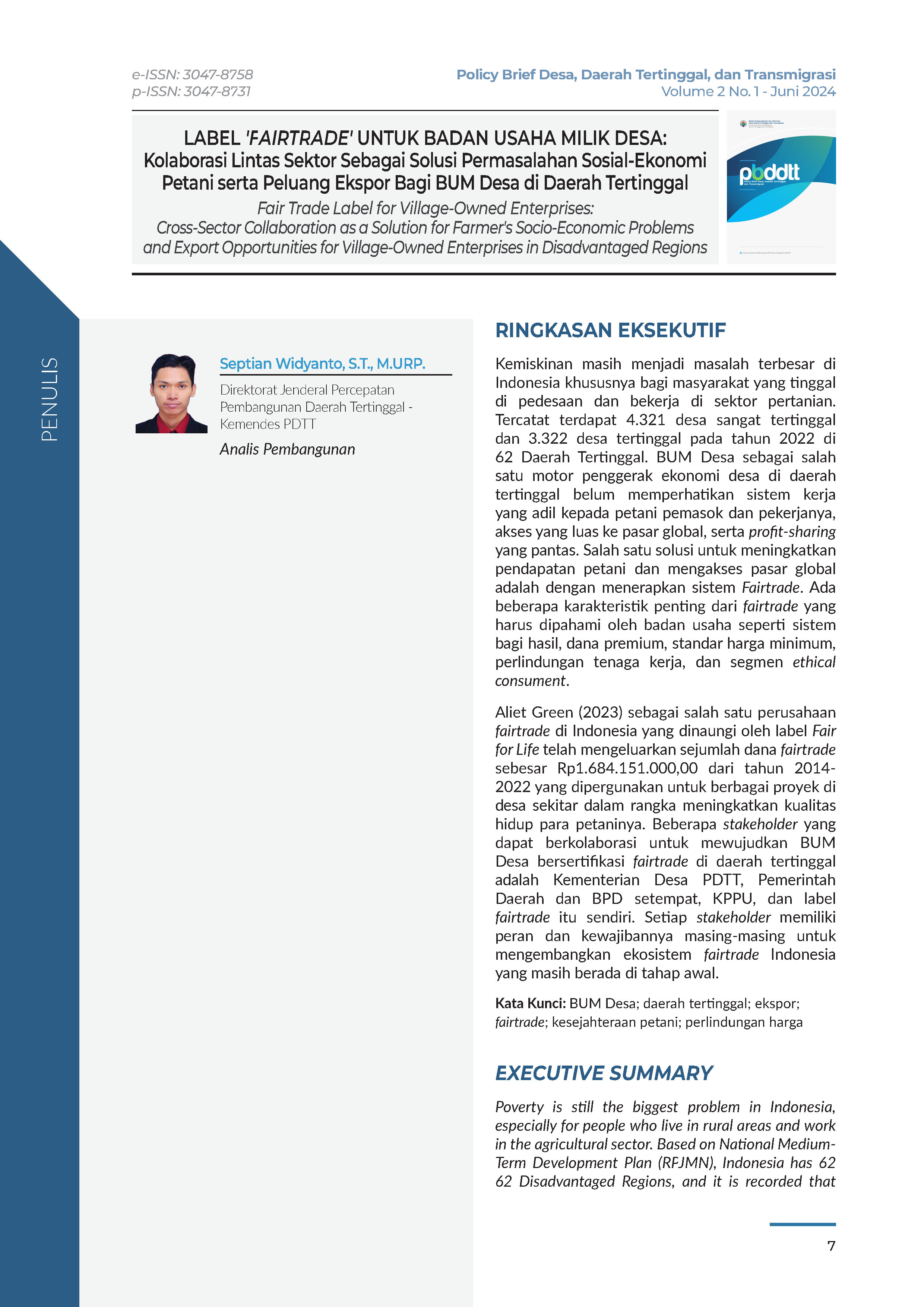Fair Trade Label for Village-Owned Enterprises
Keywords:
disadvantaged regions, exports, fairtrade, farmers welfare, price protection, Village-Owned Enterprise (VOE)Abstract
Poverty is still the biggest problem in Indonesia, especially for people who live in rural areas and work in the agricultural sector. Based on National Medium-Term Development Plan (RPJMN), Indonesia has 62 62 Disadvantaged Regions, and it is recorded that there are 4,321 extremely underdeveloped villages and 3,322 underdeveloped villages in 2022. BUM Desa as one of the village economy driving forces in underdeveloped region has not paid attention of having a fair working system for farmers and workers, having broad access to global markets, and having proper profit-sharing. One of the solutions to increase farmers' income and access to global market is fairtrade system. There are several important characteristics of fairtrade that must be understood by business entities such as profit sharing systems, premium funds, minimum price standards, labor protection, and the ethical consumer segment.
Aliet Green (2023) as one of the fairtrade companies in Indonesia that is shaded by the Fair For Life label has issued a fairtrade fund of IDR 1,684,151,000.00 from 2014-2022 which is used for various projects in the surrounding villages in order to improve the quality of life of its farmers . Several stakeholders who can collaborate to create fairtrade-certified BUM Desa in underdeveloped areas are the Ministry of Village, Development of Disadvantage Region and Transmigration, local government and local BPD, KPPU, and the fairtrade label itself. Each stakeholder has their respective roles and responsibilities to develop Indonesia's fairtrade ecosystem which is still in its early stages.
Downloads


